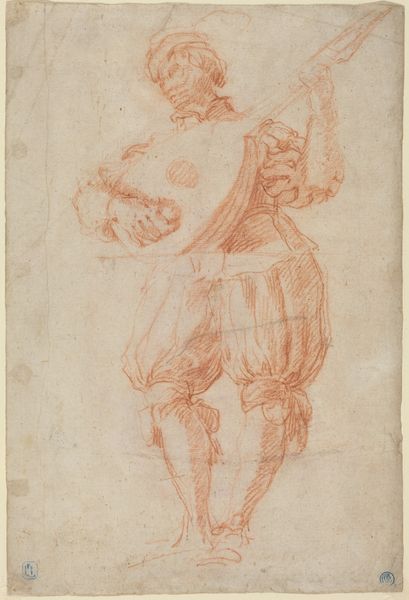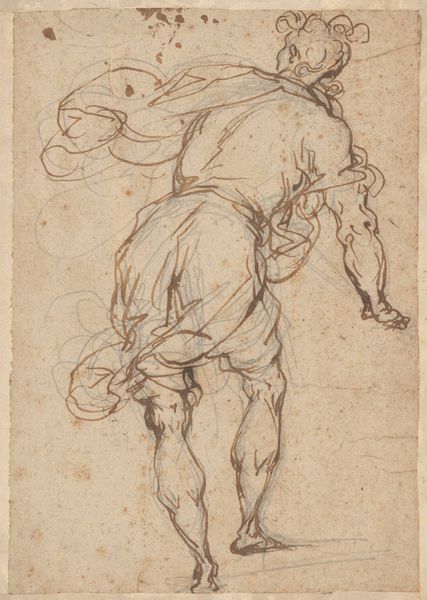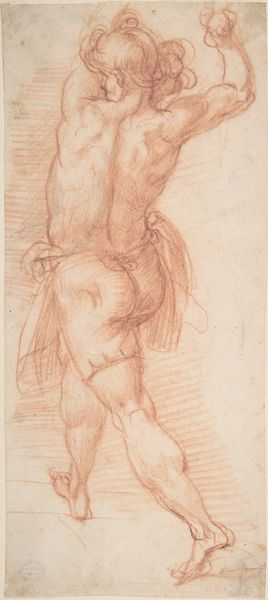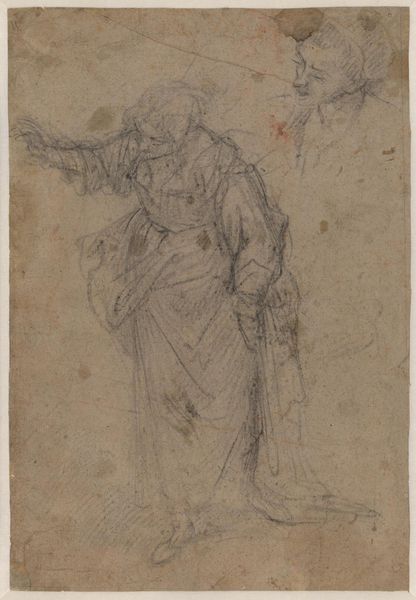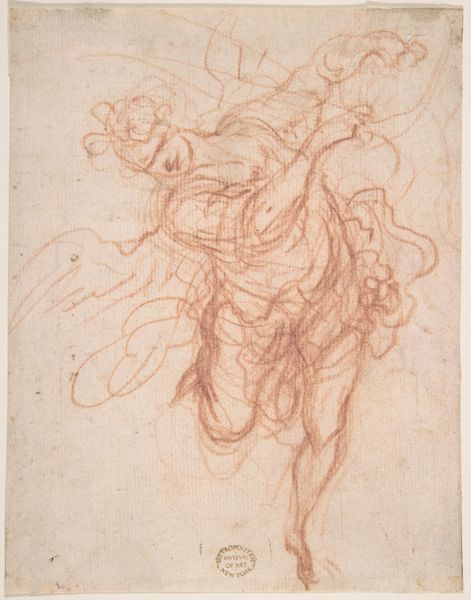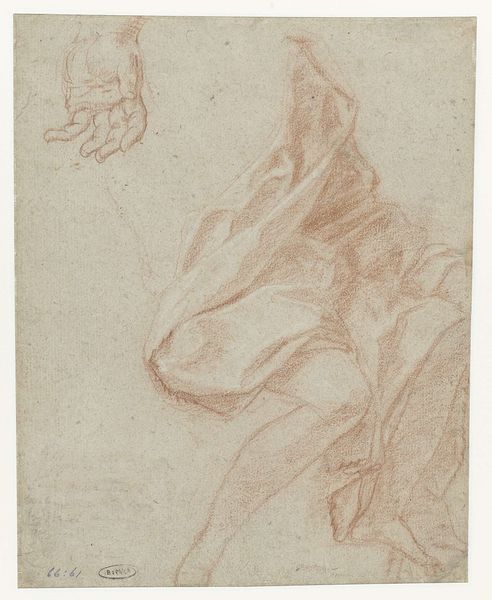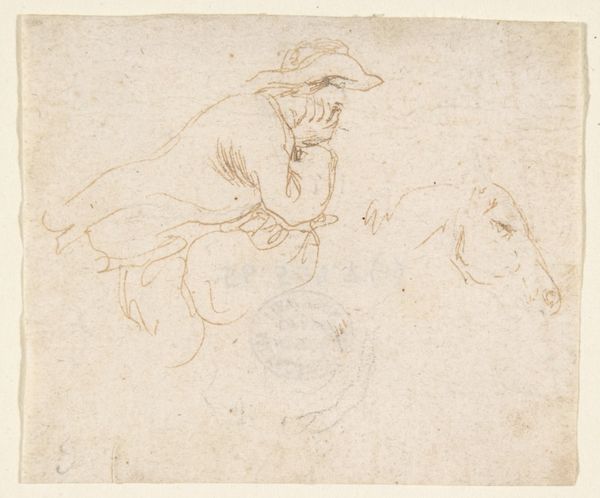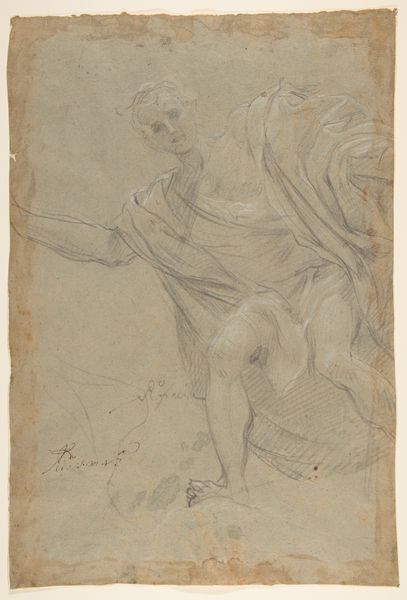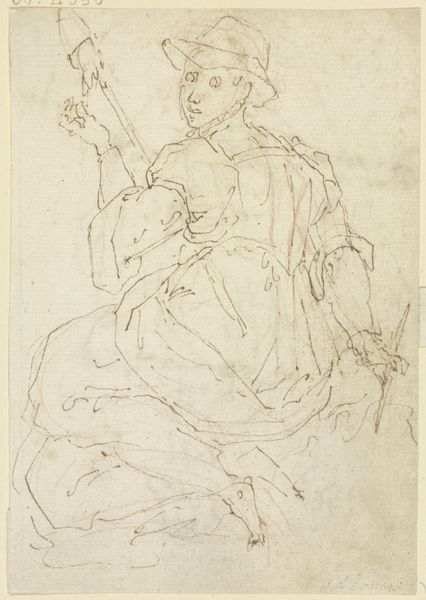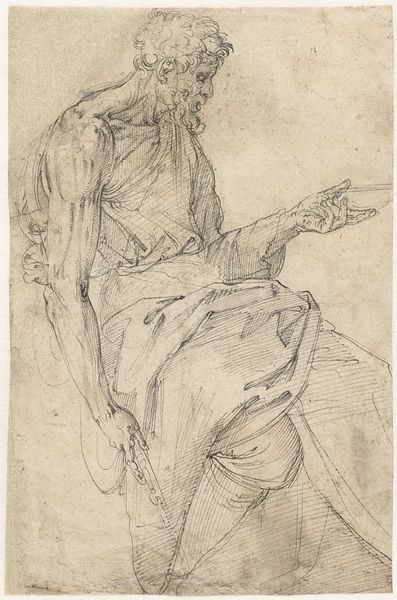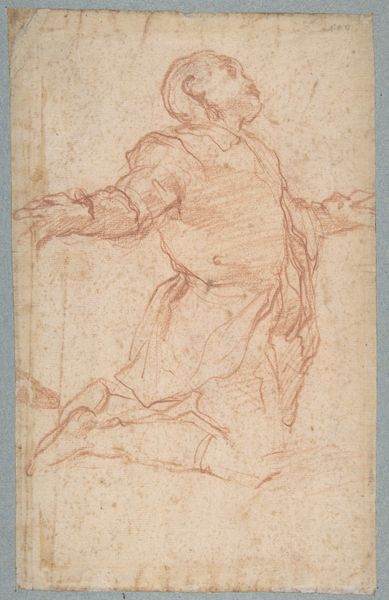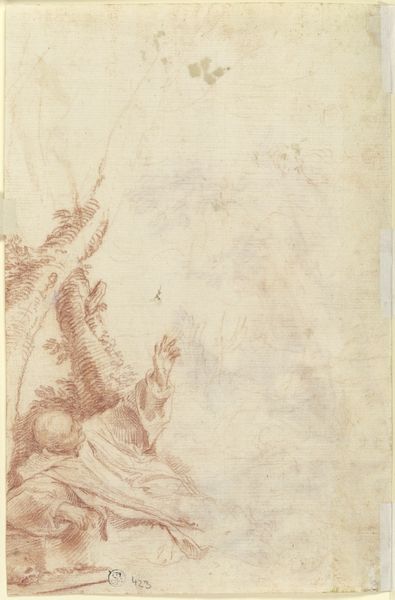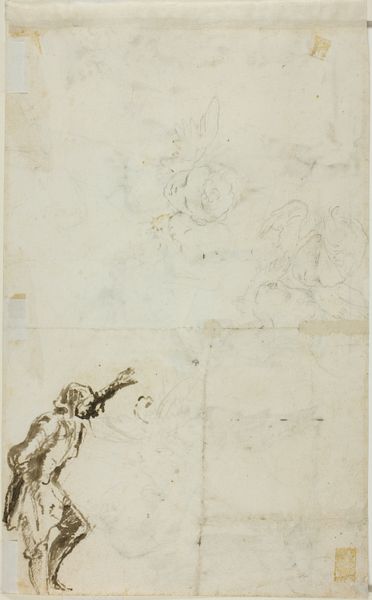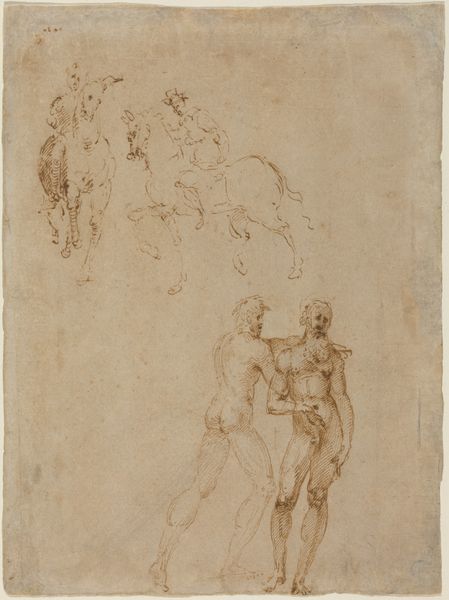
Design for the Decoration of a Pilaster (recto); Putti with Trophies and Seated Figure with Child (verso) 1524 - 1534
0:00
0:00
drawing, pencil
#
portrait
#
drawing
#
mannerism
#
figuration
#
pencil
#
italian-renaissance
Dimensions: 12 13/16 x 8 3/16in. (32.5 x 20.8cm)
Copyright: Public Domain
Giovanni Antonio da Pordenone created this drawing titled 'Design for the Decoration of a Pilaster' in the 16th century. This work provides insight into the cultural values and artistic practices of the Italian Renaissance, particularly the emphasis on classical forms and idealized beauty. In the sketch we see a vertical piling of imagery; putti, trophies and figures. During the Renaissance, the use of putti was a cultural symbol to portray playful innocence, often associated with love and beauty. The trophies included in the composition allude to military victory, and power, reflecting the political ambitions of Italian city-states. Pordenone’s sketches show the artist's efforts to synthesize classical motifs with the religious and political narratives prevalent in his time. The drawing is a window into the Renaissance world, a moment in time where art was deeply intertwined with the social, political, and spiritual life. The image is a study of power, love and beauty.
Comments
No comments
Be the first to comment and join the conversation on the ultimate creative platform.
